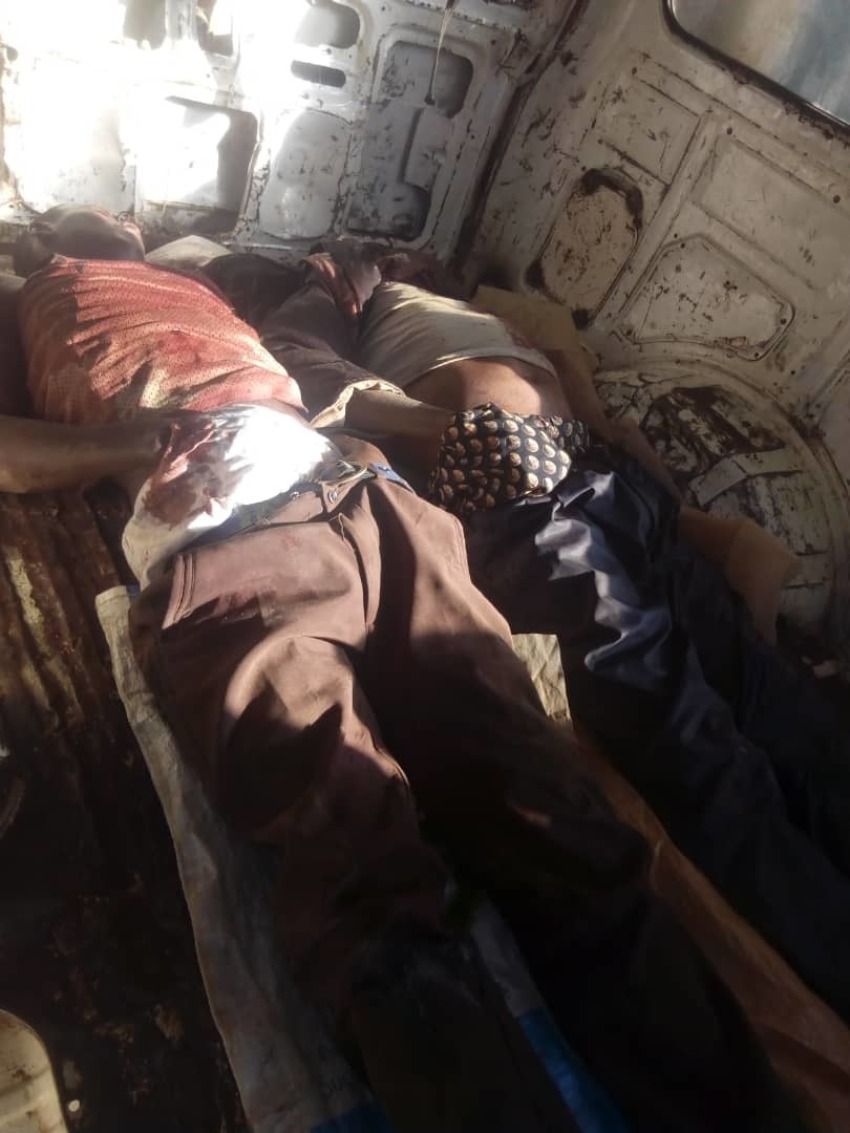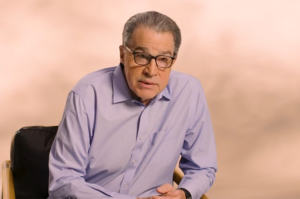Nigerian Christians ‘left to their fate’ with no defense from Fulani attacks, victims' advocate says
3 Nigerian Christians killed trying to save their village from radical Fulani militants

The Nigerian government has failed to protect its people and Christians are left defenseless against Fulani militants' attacks on villages, a crisis victims' advocate told The Christian Post.
On Tuesday, three more Nigerian Christians were murdered while fending off an armed attack by suspected Fulani militants who are also believed to have kidnapped a woman.
A peaceful night turned violent when armed extremists, believed to be affiliated with a Fulani tribe, fired their guns at the Christian village of Gura-Pwana, south of the Nigerian city of Jos, said Swanta Kumai in an interview with the Emancipation Center for Crisis Victims in Nigeria.
The gunfire woke his 28-year-old son, Joseph Swanta, from his sleep. Together, they rushed from their home without weapons in an attempt to frighten the attackers away and warn neighbors. They split up when his son ran to warn neighbors to shut off their loud power generator.
“Unbeknown to him, the attackers had already spotted his movement. When coming out, they went after him with heavy fire and shot him dead,” Kumai said. “The invaders grouped themselves into four, strategically positioned so that no one can dare them. That’s how I saw them shooting at me from a very close range, but I [managed to] escape with bruises [from crawling away.]”
Joseph Swanta served in an unarmed vigilante group that tried to protect Christians from Fulani attacks, ECCVN coordinator Dalyop Solomon told The Christian Post. After the attack, Solomon investigated the aftermath at the village to report what happened.
Nigeria’s laws forbid gun ownership and the police often fail to help Christian villages, so Christians often attempt to defend themselves by trying to intimidate away armed men, he said.
“They hope to rush to the scene of the incident and by storm create an impression that people are not psychologically threatened,” Solomon said. “You can see how suicidal that is.”
Swanta tried to stop the attack along with two other unarmed men, Solomon said. Davou Mwanti, at 59 years old, and Dalyop Davou, a 70 year old. The attackers shot and killed all three.
“[Dalyop Davou] was a watchman killed at his duty post,” his 62-year-old wife, Shetu Davou, told ECCVN. “We had always depended on him for every material need from his earnings. But he is no more today, leaving us to fend for ourselves. I don’t know what to do now.”
Fulani tribesmen killed Davou’s son in a previous attack in 2011. This year, Islamist militias in Nigeria murdered an estimated 1,202 Christians within the first six months of the year. These murders amount to genocide, according to Jubilee Campaign USA, which submitted data and research to the International Criminal Court last year, arguing that the standard for genocide has been reached when it comes to violence against Christians in that country.
“There are reasons behind the government not allowing people to acquire weapons,” said Solomon. “Instead of going in to disarm the Fulanis, they will go after the victims. [Among] the Fulani who in broad daylight threaten individuals, we’ve not heard of any arrests. People will be arrested at the scene of the incident, transferred away and released. That’s encouragement of murder [by the government.]”
Nigeria’s government threatens those who report on the Fulani attacks, according to Solomon, who told CP that the Nigerian Army has summoned him several times to ask that he change his reports of Fulani attacks.
During the Dec. 1 attack, the suspects fled after police arrived and returned fire, Solomon said. Photos taken by Solomon show the bodies of two men killed in the attack, lying in the back of a truck, bloodstained beneath morning sunbeams.
“The people are feeling so sad and disappointed because the government has a constitutional obligation to protect the life of all citizens,” Solomon stressed. “The people are left to their fate. They are not allowed to acquire arms to defend themselves, and the government fails in its constitutional duty to protect the people. There is now perpetual fear in the minds of the people. They are armless citizens.”
On Thursday, another Fulani attack took place in the village of Wereng, Nigeria, Solomon said. One man lost his life and another narrowly escaped.
The impact of attacks like these go beyond the immediate death and violence, Solomon said. When families lose working men, they fall into poverty and hunger. Christians fear to leave their villages to harvest their crops.
“There’s going to be a food crisis. Schools are closed because of the incident. No one wants to go buy and sell,” he added.
In their desperation and poverty, Christian young women become prostitutes to survive, he explained. Others turn to drugs in despair.
Radical Fulani Islamists loot homes, burn crops, and kill Christians by using guns and machetes, Solomon said. They rarely take captives. But after this raid, the village discovered Mrs. Adogoke Ololade Olufunke, an older woman, was missing, he added.
“That abduction makes it quite unprecedented. It’s something that is very surprising,” he said. “When I went into [Olufunke’s] room, I discovered she was reading a Bible, jotting some notes and preparing her dinner [before she was kidnapped.]”
Solomon said he heard from a local tribal leader that the Fulani has released Olufunke, but the reasons for her capture and release remain unclear.
Boko Haram terrorists and Fulani militants work together and execute the same sorts of attacks, Solomon said. They attack at the same time in different places to overstretch responders. Nigeria’s government encourages both groups to attack Christians by its indecisiveness.
“Boko Haram and Fulani hitmen are the two faces of the same coin. When [Boko Haram] attacks intensify in the northeast, the Fulani will also intensify their attacks in the Middle Belt region,” he said. “If you look at the modus operandi, Boko Haram will attack groups, loots, and destroys crops in the name of Islam. The Fulani will also attack, loot, and kill in the name of Islam. They demolish and then rename communities they sack after their own names.”
To help Nigerian believers, their brothers and sisters in Christ around the world can donate to charities like ECCVN that help Nigerian victims of radical Islamist attacks, Solomon said. Christians can pray for the Nigerian government to legalize gun ownership, give back lands stolen by the Fulani, and prosecute attackers. Finally, they can apply pressure for the Nigerian government to support religious freedom.
“We have been left to our fate. We are appealing to Christians,” Solomon said.
The United States provided $355 million to Nigeria in aid in 2019. Christians in the U.S. can contact USAID to ask the U.S. government to take action here.



























